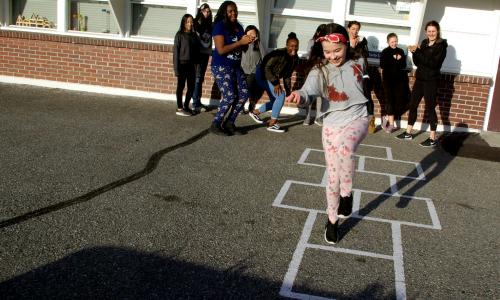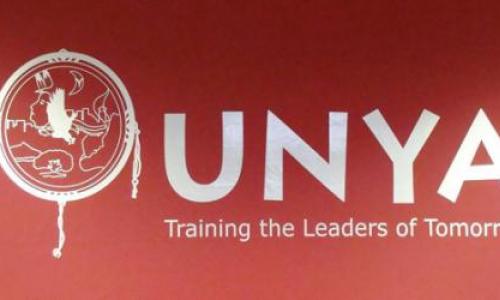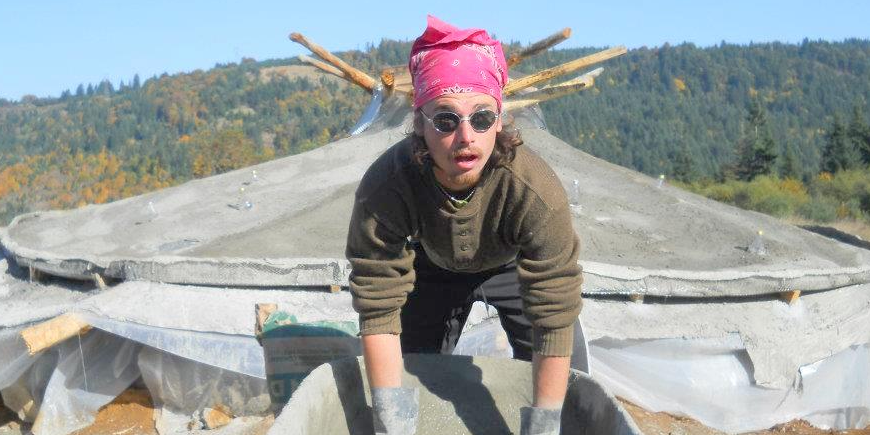
Have you ever imagined starting your own organization? Michael Beck probably didn't either when he started his undergrad studies in English and Latin American Studies back in 2005. Six years later, he started the non-profit organization thePOOSH.org and just came back from an EU-sponsored tour in the United Kingdom. Michael sat down and shared with us his academic and career advice for students interested in starting their own company and making a real impact in the world.
About Michael & thePOOSH.org
Where are you now and what are you doing?
I am currently in Carlisle, UK, a small northern England town. We have just wrapped up our EU-funded tour of the UK, promoting sustainable building and alternative fuel solutions through thePOOSH.org (People's Organization on Sustainable Housing). We had a van that ran 100% on used vegetable oil that we got from universities and pubs. It was an incredibly successful tour. We now have 30 sustainable build projects in all six habitable continents, including around 10 in the UK after only seven weeks of being launched!
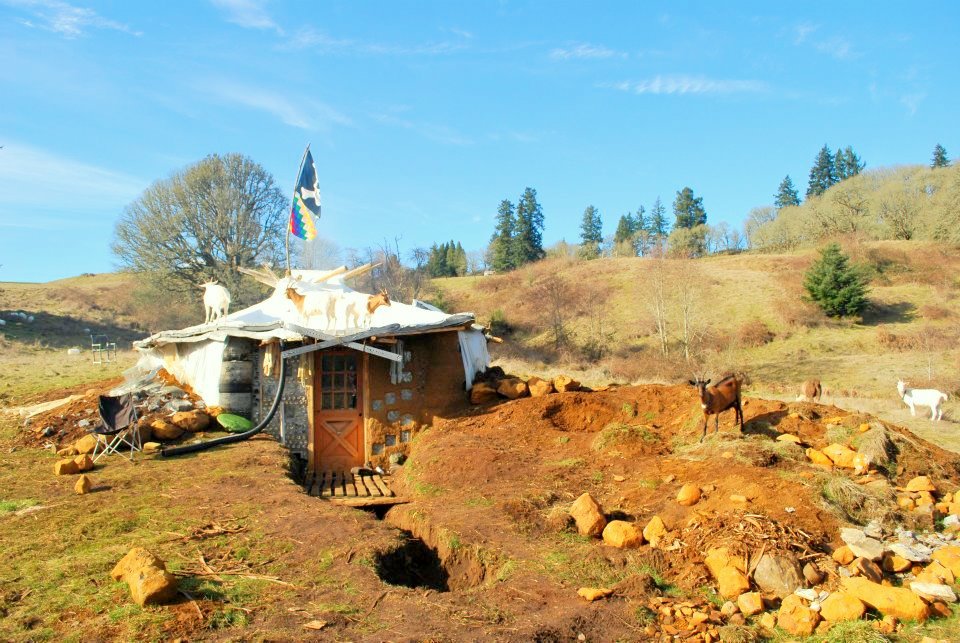
Q. What inspired you to start thePOOSH.org?
To be honest, formal courses that I took at SFU played a minor role in the conception and carrying out of the idea of thePOOSH.org. besides garnering the ability to think critically, write well and express myself.
What inspired me to start thePOOSH.org was when we chose to live in the woods in Oregon one winter and decided to build an Earthship (house build out of used car tires). Throughout this process, we met many people interested and made some lifelong friends who helped us build. We thought, "Why shouldn't this process be easier for everyone interested in building their own sustainable house?" This idea culminated in thePOOSH.org, a non-profit organization that connects sustainable build projects with those interested in learning and vice versa, thus creating an exchange of experiences and knowledge that allows everyone to learn and think about the way we live and changing our habits to make this planet healthier!
Academic Career and Life Advice
What were some of the challenges of starting your own company or organization? How did you overcome these challenges?
This is a very relevant question – we just got done with a week of end-of-tour meetings, really fleshing out the mission and vision of the organization, where we see it going from here, what our roles and responsibilities are and will be. It is very, very tough to gather a group of people from all over the globe (UK, Estonia and the US/Canada in thePOOSH.org Team) and have us all agreed on issues that we cared about.
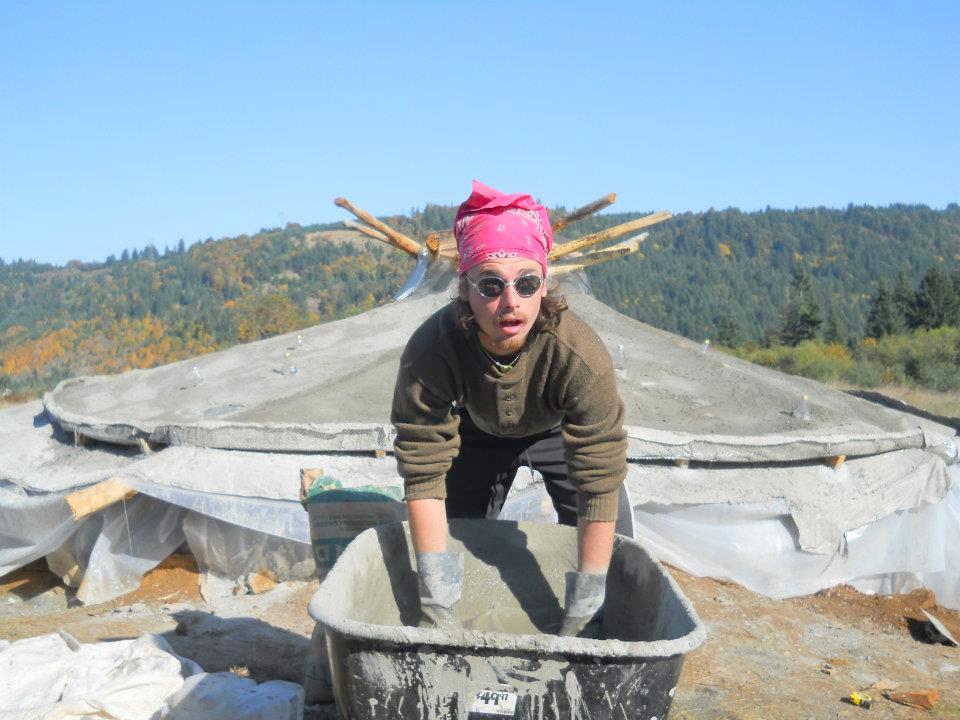
Some challenges are every day, like what we choose to eat or how we manage money; others are much more philosophical, like what sustainability means to us each and, more generally, to the vision ofthePOOSH.org. One tactic we used in overcoming these challenges was trying our best to use non-violent communication (NVC). Among other things, NVC states that only you know how you truly feel and these feelings should not be projected onto other people. Oftentimes in conversations, we might find ourselves saying something like "You make me feel..." when, in fact, it is you who feels that way and not the other person, but you choose to ignore this and act accordingly. We learned this form of communication from one of the communities we visited on the tour and, in my opinion, it has helped us immensely in the work we do as a start-up organization.
What advice do you have for students about to launch their careers and/or who plan on starting their own company/organization during or after graduation?
Do it! We've all discussed and accepted the fact that we couldn't have done this on our own. You need a solid support base, a like-minded community around you to be happy and achieve these types of long-term goals. This is a huge obstacle but the pros far outweigh the cons. One of the biggest things I've learned or taught myself is to not be afraid of doing things you don't know how to do. The only way to learn is to have no fear and dive right in, submerse yourself in what you don't know and eventually it will make sense. For me, this is still terrifying, but when I step back and think about what I didn't know months ago compared to what I've learned since then, it is comforting to realize that, yes, I can learn new skills and concepts that were foreign to me in time past.
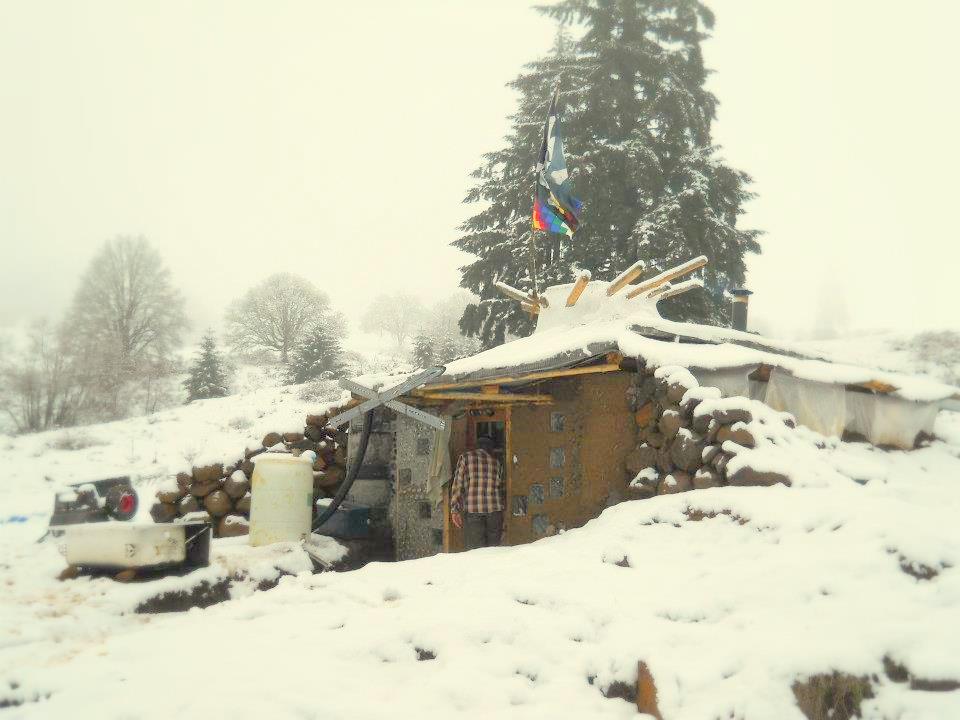
What life advice would you like to offer SFU undergraduates?
I got an internship in a field that I absolutely loved and still do love. It was at KEXP in Seattle, a donation-powered independent radio station and this experience gave me joy beyond words. I recommend all graduates to get an internship in not necessarily the field you studied but what you are interested in. Other than that, I would highly recommend graduated to do what you want to do. Too often, we feel like we have to branch off from university into prescribed areas of employment or further studies. To me, this is one of the most harmful feelings a young person can have – the feeling that you can't truly do what you want to but rather that you have to do what others see as valuable. If you set your mind to something, it will happen!
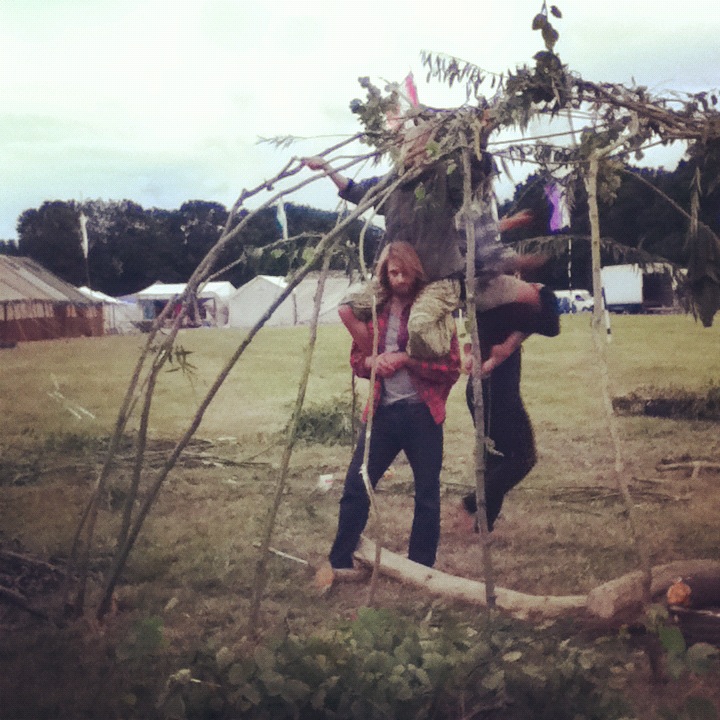
Which SFU undergraduate courses would you say were the most applicable to the work you do today?
Well, I took an Environmental Studies class that is perhaps, pragmatically, the most relevant. However, I would argue that all of my English courses are very applicable because of the amount of reading, writing, critical thinking and communication that was involved, which I can transfer to my role at thePOOSH.org. Additionally, my English courses have turned reading into a hobby of mine – I can't stop reading everything I can get my hands on!
Do you have a favorite course and why?
I LOVED my Shakespeare courses. They were consistently entertaining and light-hearted. Oddly, some of my more challenging courses were some of my favorites also. I remember a US Literature course I took with Jon Smith that was really good – I have fond memories of staying up all night to snail my way through Dos Passos' USA, a novel I certainly wouldn't have read if it weren't for that class but am glad I did. Also, Old English and translating Beowulf with Professor Hussey was a highlight – he is a wonderful professor.
Do you have a favorite professor and why?
Hands-down my favorite professor was Torsten Kehler. Several times, I entered his Shakespeare seminars feeling down for some reason and left with a smile on my face and a great feeling of accomplishment. He became one of my role models at SFU – I took his extracurricular recommendations with enthusiasm, whether it was Shakespeare opera or Roman history, and even his habits. I, too, began to bike up the mountain for class and work, drink more green tea and develop a fierce craving for dark chocolate. If Torsten sees this, thank you for being amazing! Everyone should take a class from him.
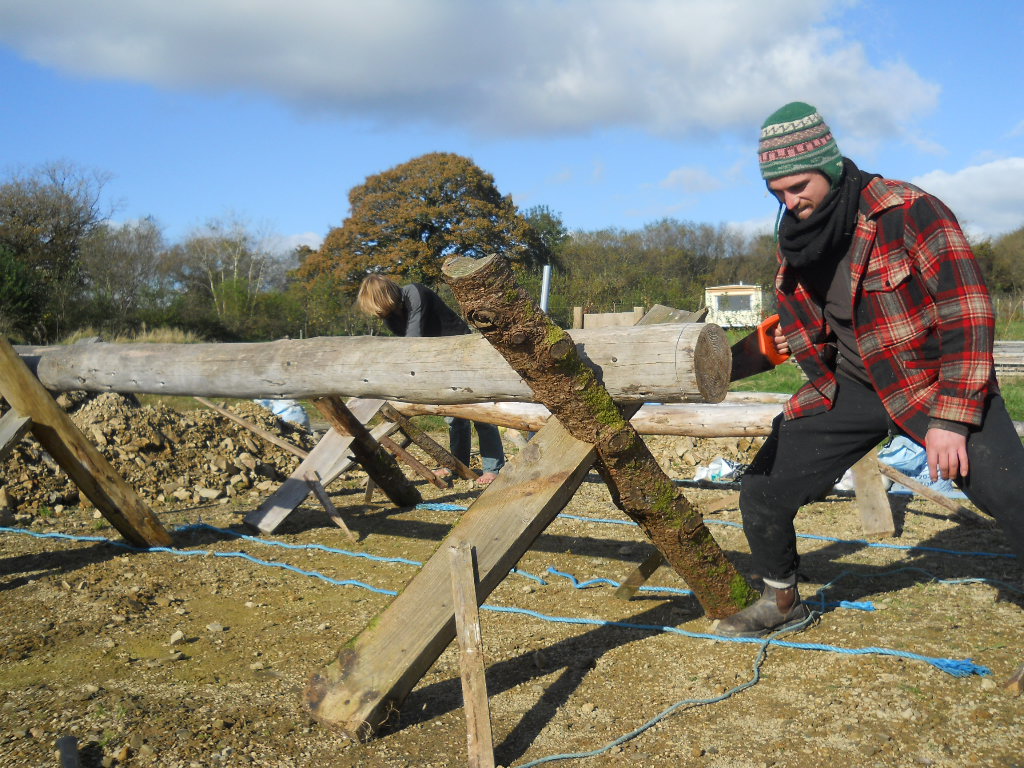
If you had the opportunity to live your undergraduate career over again, would you choose to do anything different?
I certainly would have taken more advantage of Vancouver's location – I would have hiked more, camped more, been out-of-doors more. I feel like this question begs the answer "I should have studied more," but I feel like I studied the right amount. Oh! I certainly would have joined more clubs. I realized the benefit of clubs towards the end of my final year and hugely regretted that I did not do more of these!
What other steps (besides co-op, if applicable) did you take to prepare for your career?
Being open-minded. Being nice to everyone. Accepting people without necessarily having a full understanding of their positions. Smiling more. Hugging people more. Enjoying parts of experiences rather than the sum of the parts. Get out of the mainstream.
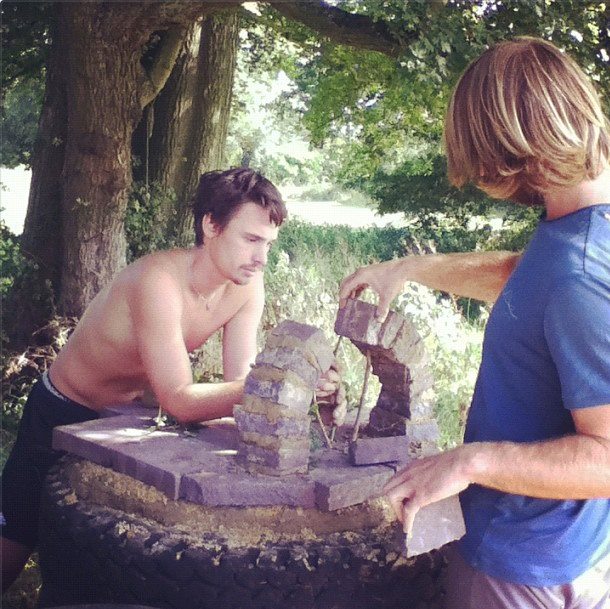
Did you have any mentors during or since university?
Yes, many. They came in the form of soccer coaches, friends, professors and strangers.
Do you do any volunteer work?
Haha. Well, we have been doing volunteer work to get thePOOSH.org up and running for the last six months. If you would like to get involved or support thePOOSH.org, please visit our website.
Support thePOOSH.org and and their campaign here!










